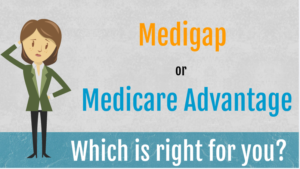When is a Medicare Supplement Guaranteed Issue? Getting a Medicare Supplement plan can be a crucial part of a sound financial plan once you are retired. A Medicare Supplement gives you predictable out of pocket costs once you are on Medicare and limits, or eliminates, your exposure to potentially high medical costs. But, if you don’t sign up for one when you are eligible to do so, you may have difficulty getting a plan at a later time. Because of this, it’s important to understand when you’re in a Medicare Supplement guaranteed issue period.
To understand the answer to this, we must first make the distinction between two terms used with Medicare Supplement (also called Medigap) plans – Guaranteed Issue and Open Enrollment. The terms have similar meanings and similar implications – for both situations, you cannot be turned down for a Medigap plan. There are no pre-existing conditions exclusions or limitations. However, there are some differences between open enrollment and guaranteed issue.
What is Medicare Supplement Open Enrollment?
Open enrollment, as it pertains to Medicare Supplement plans, is a 6 month period that begins the first day of the month that you are both 65 or older and enrolled in Medicare Part B (see page 14 of the “Choosing a Medigap” booklet).
Now, some states do have additional open enrollment periods for people on Medicare. This includes, in some cases, open enrollment periods for people under age 65. It also includes, in some states, continuous open enrollment periods or annual open enrollment periods. But in most instances and most states, the Medigap open enrollment period c oincides with your enrollment into Medicare Part B and the contingency that you be 65 or older.
oincides with your enrollment into Medicare Part B and the contingency that you be 65 or older.
Additionally, most insurance companies allow you to enroll in a Medigap plan up to 6 months before your Medicare coverage starts. When you do that, the coverage does not start right away, though – it begins the same day that Medicare begins, which for most people, is the 1st day of the month that you turn 65.
If you continue working past age 65 and are covered by a group/employer plan, you can (and in many cases should) delay enrollment into Medicare Part B. In that instance, your open enrollment period is also delayed until such a time that you do enroll in Medicare Part B.
If you are in your open enrollment period, that means that you can get any Medigap plan that is sold in your state without any pre-existing conditions restrictions or exclusions. Insurance companies cannot refuse to sell you any Medigap policy that they offer, and they cannot charge you more based on your health. Because of that, it is crucial to compare and choose a plan within this initial 6-month open enrollment period (check out our Turning 65 Roadmap for guidance on starting with Medicare and Medigap).
When is a Medicare Supplement Guaranteed Issue?
A different type of eligibility for Medicare Supplement coverage is called Medicare Supplement guaranteed issue. Guaranteed issue periods have the same basic implications as the Medigap open enrollment period, in that you cannot be turned down for coverage or made to pay more based on your health. However, there are some additional considerations.
First of all, you must fall into one of the situation-specific guaranteed issue periods. These are mandated, under Federal law, and all insurance companies must abide by them in order to offer Medicare Supplement plans. The main ones are:
- You are losing a Medicare Advantage plan due to moving out of the plan’s service area or your plan pulling out of offering Medicare Advantage plans (What is the difference in Medigap and Medicare Advantage?)
- You are losing employer group health coverage that pays after Medicare pays.

- You have a Medicare SELECT plan and move out of the plan’s service area.
- You joined a Medicare Advantage plan when you first turned 65, and within the first year or joining, you decide you want to switch back to “original” Medicare and get a Medigap plan.
- You dropped a Medigap policy to switch to a Medicare Advantage plan for the first time, you’ve been in the Advantage plan for less than a year, and you want to switch back to the original Medigap plan.
- Your Medigap company goes bankrupt and you lose your coverage or your Medigap coverage ends through no fault of your own.
If you fall into one of those scenarios, you can get Medicare Supplement guaranteed issue into certain Medigap plans. One of the big differences between open enrollment and guaranteed issue is which plans are offered. Whereas in open enrollment, you can choose any Medigap plan that is offered in your state, during a guaranteed issue you can typically only choose Medigap Plans A, B, C, F, K or L that’s sold in your state by any insurance company. This does somewhat limit you on your plan selection and can be a problem if you wanted a different plan (i.e. Plan G, which is often a better deal than C or F in particular). NOTE: For people who are turning 65 after 1/1/2020, Plan F is not available (on a guaranteed issue basis or otherwise). For those people, Plan G is offered on a guaranteed issue basis if you meet those criteria.
How do you know if you’re in a Medicare Supplement guaranteed issue period? You can look at the situations above or check Medicare’s “choosing a Medigap” booklet. It is important to realize, too, that some of these provisions vary by insurance company and state. But the ones listed above are the ones that are Federally-mandated.
What If You’re Not in Open Enrollment or Guaranteed Issue?
If you are not in a Medicare Supplement guaranteed issue or open enrollment period, it does not necessarily mean that you cannot get a plan. However, you will, in most cases, have to ‘qualify medically’ to get  a plan outside of these periods. What this means, in practice, is that you have to answer medical questions on an application and be “approved” to get a plan. These questions vary by state and company, so the only way to see if you would qualify is to contact a broker for guidance or contact each insurance company in your state to find out if you are eligible.
a plan outside of these periods. What this means, in practice, is that you have to answer medical questions on an application and be “approved” to get a plan. These questions vary by state and company, so the only way to see if you would qualify is to contact a broker for guidance or contact each insurance company in your state to find out if you are eligible.
Generally speaking, most insurance companies are asking about the last 2-3 years and asking about things like cancer, heart attacks, stroke, insulin-dependent diabetes, COPD, multiple hospitalizations, and known/upcoming medical tests/procedures. But again, each company is different, and the best way to get a read on whether you are eligible (if you are not in open enrollment or guaranteed issue) is to have an independent broker run options to see which companies, if any, may work for you.
_____________________
65Medicare.org is a leading, independent Medicare insurance  agency for people turning 65 and going on Medicare. If you have any questions about this information, you can contact us online or call us at 877.506.3378.
agency for people turning 65 and going on Medicare. If you have any questions about this information, you can contact us online or call us at 877.506.3378.

